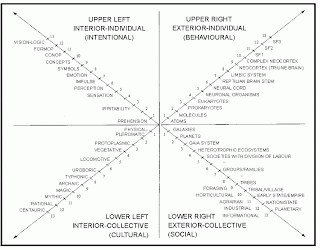- The guy isn't even Jewish!
- God is a cynic - betting on the faithfulness of his believers with Satan no less.
- God is unfaithful - he sold out his most faithful follower.
- Job is not about patience but more about enduring the incomprehension of God's ways.
- Job shuts God up for eternity - in the Old Testament it is the last time we hear God speak (in the Christian versions Job appears earlier).
 |
| Job mocked by his wife |
Interesting to note that Job is mentioned in the Old and New Testaments as well as in the Coran. And while the Coran does not mention Job that often, I found it interesting that during the Lebanese civil war in the 1980s it was often written on walls around Beirut "sabrak ya Ayoub" - meaning something like "Be patient Job".
For those who have not read the book, basically the form is a bit post modern alternating poetry and prose in the three parts. Three different friends come and give Job "advice" as he suffers many different maladies until God comes to address Job directly. The ensuing "dialogs" are fascinating as basically it seems like Job has the moral upper hand and God resorts to the "because I said so" of many parents and then disappears for eternity with the equivalent of a "humph!"
I am now reading a fascinating "biography" of Job, Job's unknown author/s and the story of Job throughout history. It is called "Vies de Job" (Lives of Job) and is written by the very erudite Pierre Assouline.
The book is fascinating on a lot of levels but one of the most incredible is that on page 84 he made a comment which made me think of a book written by my grandfather, Yossel Rakover speaks to God. A Job-like story which is incredibly powerful in a short format. Imagine my surprise when 5 pages later he goes on to tell the story of Yossel and my grandfather Zvi Kolitz over 10 pages!
In this book, I also learned how many people identify with Job! It turns out that he is the poster boy of the rich as he was both the richest in the land and the most righteous, so this proves that the two can go together. Also, many (tortured?) artists and authors completely identified themselves with Job. Voltaire, that strange (and contestable) literary figure, for example, mentions Job or identifies himself with Job nearly 1800 (!) times in his letters and correspondences. Can you say "obsession"?
And as an added bonus, Pierre Assouline mentions in his book Francis of Assisi, another personality from posterity I am particularly interested in, even if it would probably have been Brother Leo (his faithful sidekick) who was more Job-like, but side-kicks never do get the merit they deserve across the ages. Mutatis mutandi and all that jazz.
